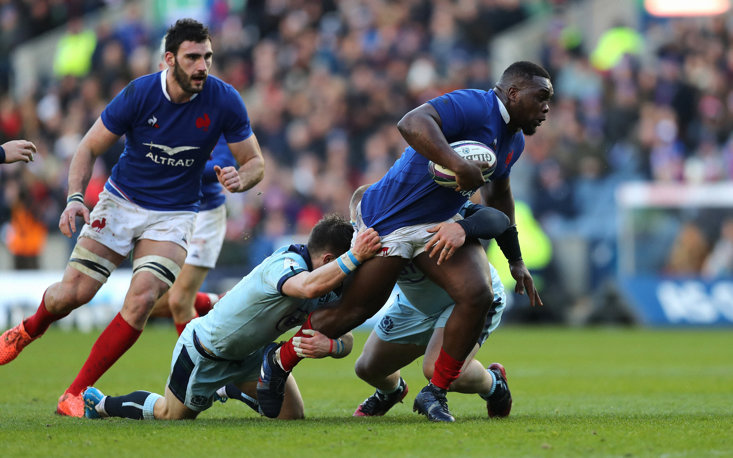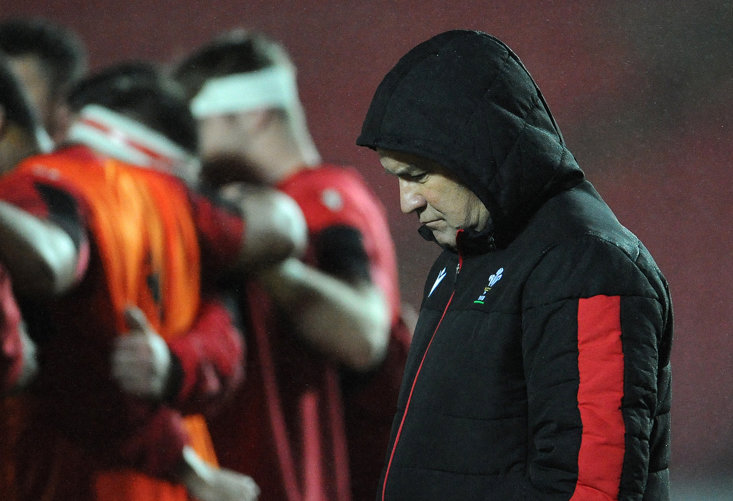It was a three-month reign, but a reign it was. On 31 October 2020, 274 days after it all began. Eddie Jones’ England won the Six Nations Championship after a memorable Super Saturday, a bonus-point win over Italy in the second game of the day taking them to the top. France’s failure to beat Ireland by a 31-point margin in Paris completed England’s joy. It had taken a whopping nine months, from 1 February to Halloween, for England’s first Championship crown since 2017.
And now, just three months on from that Six Nations success, the trophy needs defending already. But what competition are they, Wales, Scotland, Ireland, France, and Italy entering? The 2020 incarnation was blighted by measures to combat the spread of Covid-19, so what is to be expected of the ‘21 edition with the pandemic prevailing?
The Women’s Six Nations tournament is already set to be postponed as a result of the escalating crisis, with organisers being forced to concede defeat in their attempts to stage the competition in its traditional February and March window. April and May are now pencilled in as an alternative.
The men’s campaign is due to kick off - without fans in attendance, of course - when Italy face France in Rome on Saturday at 2.15pm, with increasingly specific scrutiny from the French government. Though it has given the go-ahead to France's opening fixture, President Emmanuel Macron and his ministers demanded to see England and Ireland's virus containment plans before it allowed France to travel for Six Nations games, due to the high daily number of positive tests for the virus in the two countries.

“We keep the first match but, on the other hand, when it comes to Ireland and England [the second and fourth matches], we absolutely need to have the necessary guarantees from those countries,” said sports minister Roxana Maracineanu in mid-January, “There has to be proof that the other nations’ virus framework respects the same requirements [as France] in terms of precautions. We expect the same thing from other teams.”
The opening weekend main event, however, is undoubtedly current champions England hosting their Scottish rivals in a battle for the Calcutta Cup 150 years on from their first-ever meeting. Wales then host Ireland on Sunday, though Wales expect to close the Principality Stadium roof for the match. There were question marks over such a measure due to Covid-related safety issues, but after discussions with stadium chiefs it has been decided that - due to the fact the ground is not totally bereft of fresh air - the roof can be closed.
"We’ve had discussions with the stadium around that and there are plenty of areas within the stadium to open up apart from the roof," said Wales boss Wayne Pivac, as reported by Wales Online. "Also, everybody who is in the red zone in the stadium will have been tested. Obviously that applies to both groups of players and management. We’d like to think it’s a pretty safe environment. We’re talking about a large, expansive area. We’d like to think the roof will be closed and that would benefit all players."
Subject to minimal Covid-19 consequences from teams travelling and competing, and the satisfaction of the individual nations and governing bodies, the second round of games will take place on 13 and 14 February, with two-week gaps then built in ahead of rounds three and four. Those ‘fallow’ weeks are important in the overall context, as Six Nations matches will not be automatically cancelled in the event of a coronavirus outbreak during the tournament, with bosses determined all games will be played.

That could lead to an extended championship if positive virus cases force the calling-off of fixtures, with the extra weekends off in the schedule being the first alternative should fixtures in the first three rounds fall foul of an outbreak. Sportsmail has reported that there is no set number of cases within a squad that would force a postponement, but the preference of tournament chiefs is to delay games until they are able to be played safely.
The 2021 Six Nations will be played, but, like much of the sporting calendar right now, it will be played against a backdrop of uncertainty, with the drama on the pitch contending with the dual narrative of the ongoing pandemic. Everyone is keeping their fingers crossed for a safe and swift tournament to end on 20 March as planned.